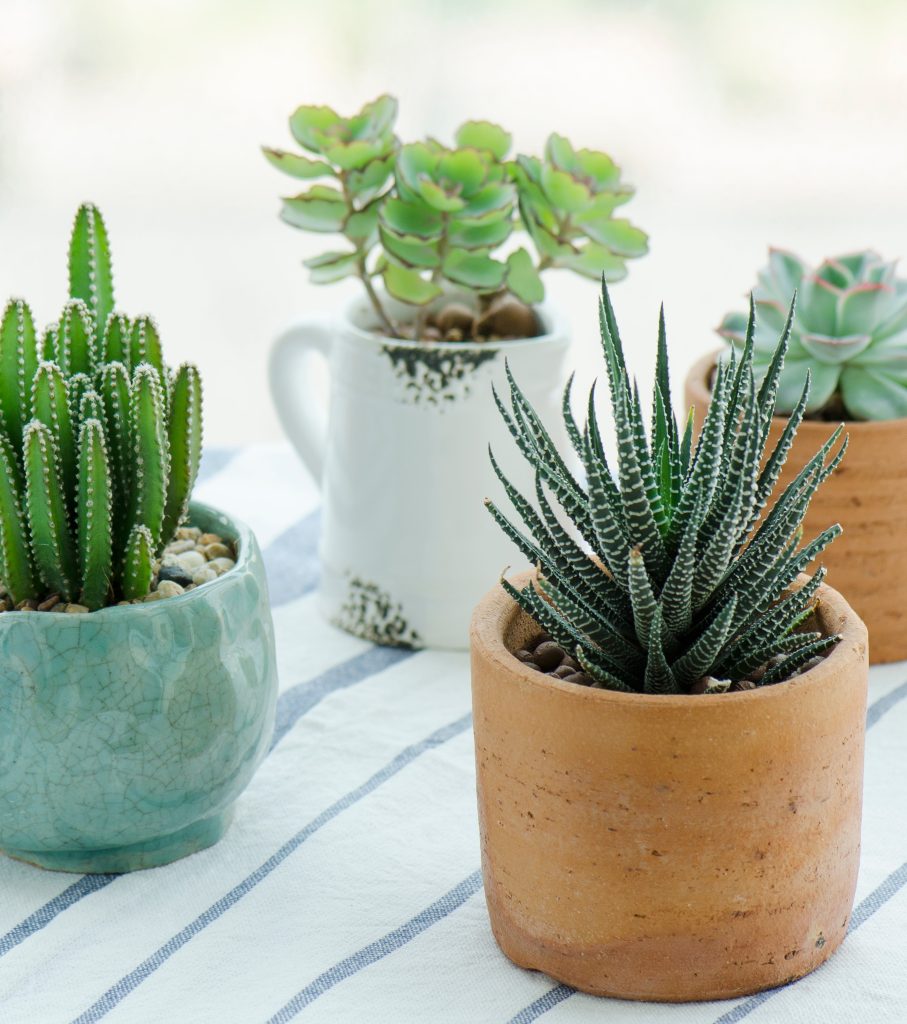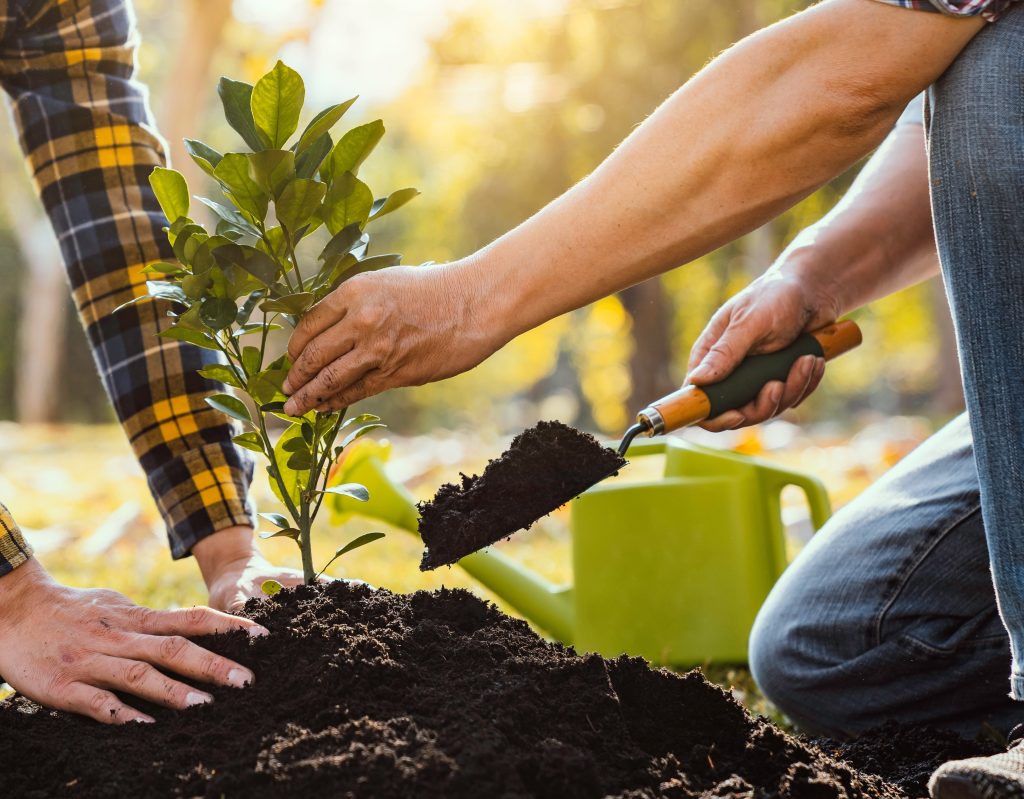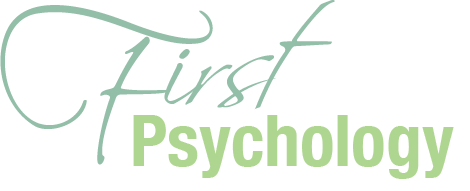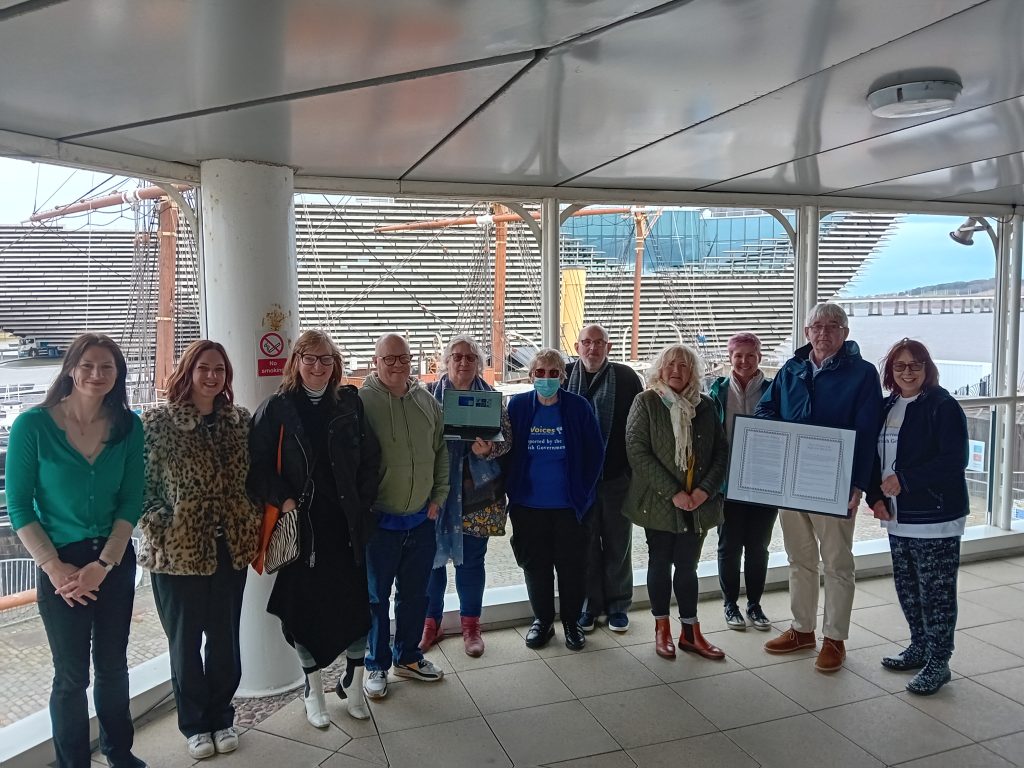We are very pleased to support the publication Accessing Records in Scotland, a new report which brings together findings about what it is like for people with care experience to access their records.
Researched and written by Aberdeen City Council, the Champions Board of West Dunbartonshire Council, The City of Edinburgh Council, Future Pathways, Social Work Scotland and Who Cares? Scotland, the report focuses on what people with care experience tell us about the Right of Access. It also makes key recommendations for how the process can be improved so that anyone who chooses to access their records in future can do so in a way that is safe and supported.
The Right of Access gives each of us the right to obtain a copy of our personal data from any organisation which holds information about us. Accessing records can be particularly significant to people with care experience: records can provide information about their past which would otherwise be unavailable.
This new report was made possible by participants with care experience who generously gave their time, knowledge and insights so that we might all gain a better understanding of how things are now and where changes need to be made. People described the deep personal significance of their records, that they contributed to forging, understanding and asserting their identities. It is essential, therefore, that services recognise why records are important to people with care experience.
It is also crucial that organisations understand how the process of accessing records can also have a serious impact. It is a significant decision for someone to choose to seek information about their time in care and the experience can be highly emotional at each stage, from the decision to make a request, to the process of receiving records, to reading them. People have described how important it is to feel informed, listened to, safe and supported throughout the process.
The process for people is significantly improved when there is good communication, access to support and full explanation from the record holders. It is essential that people are supported at each stage. The report aims to create a foundation for developing a consistent, trauma-informed, rights-based framework for anyone responding to Rights of Access requests.
Many people supported by Future Pathways seek support for record searches and it is consistently one of the most access forms of support from our Delivery Partners. We have supported over 750 people (around a third of people we support) to access their records by working with Delivery Partners, such as Birthlink and Wellbeing Scotland, who help to identify and find records, compile records, and support people throughout the process.
Future Pathways supports the recommendations made in this report. We believe accessing records is part of ongoing care; policy and practice must meet the needs of people with care experience. Clear and accessible information is essential – anyone who chooses to access their records must be supported to feel informed and empowered. We know that records can contribute to building identity and form part of the journey towards trauma recovery. Therefore, underpinning the process of accessing records must be a trauma-informed, person-centred approach that reflects choice, collaboration, trust, empowerment and safety.
We encourage all services, organisations and practitioners who are involved in working with people with care experience, record searches and trauma recovery to read this report. You will hear the voices of people with care experience throughout. Their insights into this key issue are fundamental in generating awareness, understanding and, ultimately, change.
You can view and download Accessing Records in Scotland from Social Work Scotland website here. Both a full report and shortform version are available. We encourage you to share this with your peers and networks.
Being in nature can boost our wellbeing. Here, we share top tips from First Psychology.
Growing plants at home
Taking care of plants can help you feel peaceful and give you a sense of pride. You do not need to have a garden to feel the benefits of growing plants. There are lots of plants that you can grow in your own home to create your own little garden.
Choose a room in your house that gets a lot of sunlight coming in.
• Gather some pots, soil and seeds and you are ready to start.
• You could also go to your nearest plant shop and ask for advice on what to grow or buy a plant or two from there to start you off.
• The best plants to grow inside are leafy green plants or herbs. Or you could grow a cactus as they are easy to look after.
• You could even try growing basil, rosemary, sage, pea shoots, cress or even small chilli peppers.

Spend time with animals
Being around animals can help reduce stress. Even if you do not own a pet, you can still spend time with animals. For example, if a friend owns a pet, you could look after it for the day, or you could join them for a walk in the park. You could also visit an animal shelter or a nature reserve if you live near one.

Listen to the sounds of nature
We often do not notice all the natural sounds going on around us. Taking time to sit in nature and focus on these sounds can be a good way to relax. Try to find a quiet spot to sit. This could be a garden, a park or another place close to nature. Sit in silence and focus on each different sound you can hear, one at a time.
For example, the birds singing or wind in the trees. You could even write the sounds down. If you are not able to get out into nature, you could try listening to a recording of nature sounds instead, like birdsong or rain. You can find recordings of nature sounds online.

Take nature screen breaks
In our modern lives, we often spend a lot of time in front of screens, like our phones. If you use your phone a lot, you could try to create a new habit. For example, putting your screen down regularly to look out the window and up at the sky for few minutes, or by making sure you put your phone away when you are outside.
Taking breaks from our screens to enjoy nature and the outdoors is an easy way to find a more balanced lifestyle. We also get the positive impact that nature can have on our overall wellbeing.

Take part in activities that help look after nature
There are lots of things you can do to help protect and restore natural places. Taking part in these activities can help us feel connected to our natural world and feel a sense of purpose.
Find out what activities are going on in your local community. There are often group activities that anyone can get involved in. They are often run by volunteers and very happy for new people to come along and join in.


This article is adapted from a booklet called Eco Therapy and Wellbeing written by First Psychology. First Psychology are one of our Delivery Partners. They offer different kinds of therapy, like counselling, psychotherapy and coaching. They are based in Edinburgh but they have offices in lots of places.
You can find out more about them at www.firstpsychology.co.uk
You can see the full booklet at: www.firstpsychology.co.uk/booklets
We are delighted to share our latest report, Co-designing peer support at Future Pathways. Created in collaboration with Voices for a Better Future, Iriss and Scottish Recovery Network, this report shares what we have learned from our recent co-design project.
In 2023, Future Pathways undertook a project to look at how we might develop peer support. We took a collaborative approach, working alongside people with lived experience who have accessed support from Future Pathways, as well as partners with expertise in co-design and peer support.
At Future Pathways, one of our strategic objectives is to support people to improve their own lives and achieve their personal goals. Through this co-design project, we aimed to explore the peer support and engagement opportunities sought by people who access Future Pathways and identify what these opportunities could look like. This would then give us a strong starting point to develop, explore and test ideas in future.
The project was underpinned by the principles of trauma-informed practice, and we took an appreciative approach which valued individual insights and group contributions. From this foundation, participants took part in a range of activities which uncovered key areas for potential development.

Through the project, we learned that people we support seek opportunities for people with lived experience to learn together, share interests, support each other, influence wider positive change and advocate for themselves and for others. Running throughout these ideas was the importance of creating the space and time to listen and be heard, promote hope and understanding, and generate connection, community and a sense of purpose.
In many ways, the collaborative approach of the co-design group mirrored the very support that people identified as being needed. For example, this project involved creating and taking part in opportunities to share perspective and knowledge, create connection and influence change.
We thank all those who took part in the project. Participants were deeply motivated to contribute meaningfully to developments that would benefit people with lived experience of abuse and neglect. By listening to the voices of people with lived experience and those of our partners and staff, we are all given the opportunity to learn, reflect and improve. We will take time to reflect on what has been shared and what we have learned, and look at how we can use this as the foundation for future activity.

This report has provided a strong starting point for Future Pathways. We recognise that interests and needs are diverse, and we will test options in order to build on what works for people registered with us. We will encourage community and inclusion, and aim to reach as many people as we can through any new activity.
Collaboration is key: we will continue to work together in co-creating projects that meet the needs of people registered with us, and share what we are learning along the way.

Above: Members of the co-design group at their last meeting in Dundee, 2024
“We were very motivated to take part in this project, because we believe that developing peer support at Future Pathways will make a big difference to people accessing the service. Through this project, we shared our ideas and got to know each other better. We are looking forward to continuing to work together to make sure the needs of people accessing Future Pathways are met.”
– Voices for a Better Future
“It was a real inspiration to work with such motivated colleagues, from both Voices for a Better Future and our partners. We learned a lot about what people felt would be most important in introducing peer support. This year’s plan was a direct result of this co-design process which included people registered with Future Pathways, staff, the Scottish Recovery Network and led by Iriss. It is hugely exciting to start work in this area and even more exciting to do so in ongoing partnership with Voices for a Better Future.’’
– Flora Henderson, Manager, In Care Survivors Alliance
‘Scottish Recovery Network values this opportunity to work with Future Pathways, Voices for a Better Future and Iriss to explore peer support and how it can be developed in Future Pathways. This collaboration meant that we could share our lived and learned experiences and bring a range of perspectives together to look at things in new ways. It may have been the start of a longer process but it has been one full of learning and potential.’
– Louise Christie, Director, Scottish Recovery Network
‘This project shows the importance of people having an active role in their own recovery and working alongside others connected by similar experiences. It was an inspirational experience to work with the Voices group who expressed a strong desire to make a difference to future generations. We are delighted that our partners Future Pathways and Scottish Recovery Network, are taking forward ideas from the co-design work and are passionate and committed to peer support for those accessing Future Pathways.’
– Ellen Daly and Kerry Musselbrook, Development Leads, Iriss
We work with Matter of Focus to help us evaluate the difference we make and see how we can improve. We spoke to Ailsa Cook, Co-Founder and Director of Matter of Focus.
Can you tell us a bit about Matter of Focus and the work you do?
Matter of Focus is a purpose-led company and B Corp based in Edinburgh set up by myself and co-founder Sarah Morton in 2017. We support public and third sector organisations to understand, evaluate and track the difference they make.
Sarah and my paths had crossed several times during our long and established careers in academia, where we had both kept one foot firmly planted in the real world of influencing policy and practice. We both really knew that organisations needed better tools to evaluate their own impact, tools that would empower them to learn in real time thereby deepening their understanding of their work, which is what’s required to really make the best difference possible. So that is what we set out to provide.
Matter of Focus offers a practical and meaningful approach to understanding and evaluating change, along with expert support, and we have developed our own software OutNav to hold the approach and help organisations embed ongoing self-evaluation, learning and improvement.
How have you worked with Future Pathways so far?
We’ve had the pleasure of working alongside Future Pathways since 2018. They were aware of my expertise around evaluating personal outcomes and approached Matter of Focus when they were looking for support with their evaluation and research, which they knew was an important part of their work to build the evidence base for a new and pioneering service.
Initially, we produced a scoping report to really understand the service; looking at the context in which Future Pathways was working, understanding how they make a difference and their progress towards that. This involved speaking to people that used the service as well as staff and other partners. Since then, we provided ongoing support and supervision for Future Pathways’ researcher as they were using OutNav to embed evaluation into their work.
In 2020 we helped Future Pathways to produce their own impact evaluation, which was a substantial piece of work that mapped out how the service made a difference and brought together lots of feedback, data and evidence from across their work.
Recently we’ve been working very closely with the Impact and Evaluation Lead to supplement the information they had available to evaluate the impact of Future Pathways. This included running focus groups and workshops and doing some additional analysis. We see ourselves as a learning partner for Future Pathways offering a bit of additional input at key points.
We recently worked together to develop the Stepping Stones report. What can you tell us about the importance of collaboration when evaluating impact?
We believe it’s important for organisations to own their own evaluation: that they are clear about what they need to know and what their data is telling them and, critically, that people in the organisation are really involved in making sense of that data because that’s what leads to meaningful and efficient learning and improvement. However, we recognise that evaluating complex relational services is incredibly challenging. We have been able to bring specific expertise, guidance and an approach to evaluating complex interventions. With Stepping Stones, we were also bringing objectivity: people could tell us things they might not tell Future Pathways directly and we can see the service with a bit of distance and fresh perspective. Coupling this external lens with Future Pathways’ ongoing self-evaluation over quite some time is really powerful.
What did we learn together about Future Pathways’ impact in Stepping Stones?
This evaluation has cemented understanding of how Future Pathways makes a difference. We can be confident that their genuinely trauma-informed and relational approach to care coordination works and makes a difference to people as, building on previous evaluations, the evidence is now clear.
Additionally, the Stepping Stones report has strengthened understanding about Future Pathways’ role within the wider system and the impact they have had by working closely with Delivery Partners to make sure they’re able to support people effectively. They really understand what they need to do next to shape the system.
Future Pathways’ commitment to understanding the difference they make and their focus on embedding and sharing ongoing learning is inspirational and exemplary. We’re proud of our learning partnership.
The Community Brokerage Network (CBN) works alongside Future Pathways to support people to achieve their outcomes.
CBN was established with support from the Scottish Government, Support
in The Right Direction (SiRD) Fund. They provide independent information and support to help people with social care needs choose how to use the resources available in the best way for them.
Brokers at CBN help people identify what support they require, find out information about the options available, and put a plan in place which meets their needs.
Recently, CBN worked alongside Future Pathways to support a client to develop his literacy skills. Michelle, a CBN Broker, tells us about this experience:
My relationship with Future Pathways works well because they work in a person-centred way, and they give us as a partner the time and flexibility to be person-centred too. This aligns with our ethos at the Community Brokerage Network which is about putting people first.
The client’s Support Coordinator, Mary, put me in contact with Cellfield U.K. Mary explained how trauma can affect people and what could be triggering for the client. We identified that the time and expense of travelling to attend sessions presented a barrier to the client.
We took the time to explore several options, but Mary also knew when to step back, and trust our experience and expertise as partners. She did not micro-manage.
We arranged for sessions to take place in the client’s local community, and we adapted the length and structure of the programme according to the client’s needs.
The client initially felt quite reluctant and low in confidence because of their previous experiences of education, so we took a relaxed, informal approach. The client enjoyed the process and attended every session without prompt. This experience seemed to increase the client’s self-belief and open up future opportunities to learn.
I enjoy working with Future Pathways because we have a respectful, open exchange of ideas. My opinion is listened to.
We feel comfortable to disagree with one another and discuss options. In my
view, the Support Coordinator role is invaluable. The Support Coordinator connects me with the
client and provides information which allows me to do my job more effectively. Having a link with a Support Coordinator makes my interactions with Future Pathways more human. I have a relationship with Future Pathways – it is more than just a referral process or a box-ticking exercise.
Working alongside Future Pathways has taught me the importance of expressing clear boundaries and expectations with clients and partners.
I have gained more patience by working with Future Pathways. Sometimes, we support people with complex needs, so I have learned that it can take longer to put the right support in place. Finally, working with Future Pathways has enabled me to shift my mindset as a practitioner. Previously, I believed that I knew what support people needed. Now, I learn from survivors what support they feel they need. It’s a shift from ‘fixing’ to acknowledging survivors’ autonomy over their support.
